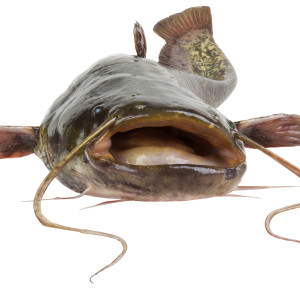There was a time when appropriations season in Washington was a time for wasteful handouts to special interests of all stripes. Grinning politicians would toss cash like freshly plucked flower pedals, while skipping in the summer sun. Capitol Hill was alive with the sound of earmarking. Fortunately, there is a moratorium on earmarks, but there is still plenty of wasteful spending that needs to be eliminated. One program in particular, the United States Department of Agriculture’s (USDA) catfish inspection program not only epitomizes wasteful spending, it could dismantle an important trade deal thereby hurting economic growth.
The good news is that opposition to the catfish program is cueing up in the House and Senate to defund the program. The reasoning behind opposition to the USDA catfish inspection program is obvious by the fact that the Government Accountability Office (GAO) has called the program unnecessary six times. The GAO’s argument is clear and convincing; the Food and Drug Administration is already doing that job, so there is no reason for the USDA to duplicate that work. The USDA catfish inspection program is an excellent example of the murky underworld of special interest lobbying and illustrates how a little-known catfish program can not only waste millions upon millions of taxpayer dollars but muck up international trade negotiations too.
Like so many things in Washington, the USDA catfish regulation program (which by the way has spent $20 million dollars in four years and not inspected a single fish) is not what it appears to be. It’s not the food safety program its special interest authors claim it is. No, it is actually a trade barrier designed to keep imported fish out of the U.S. seafood market and thus kill competition for the domestic suppliers. It sounds like a protectionist plan that a catfish farmer or two might be able to get behind. But aside from being a colossal waste of money it turns out it’s actually a selfish, ill-conceived strategy that will hurt U.S. agriculture and is already having a negative impact on negotiations for the Trans Pacific Partnership (TPP). Ten Asia/Pacific countries have written to the United States Trade Representative calling the program an obvious violation of international law.
So, as trade partners in South East Asia prepare to file suit in world trade court it has become clear that domestic catfish would face no retaliatory tariffs at all because… well… the U.S. doesn’t export any catfish. While beef, pork, corn and soy would be hammered, catfish would remain unscathed.
The USDA catfish program itself will cost taxpayers a minimum of $170 million dollars but the impact on bilateral trade could be almost incalculable. The volume of U.S. agricultural exports is projected to grow more than 30 percent between Fiscal Years 2013 and 2014, to nearly $150 billion. Meanwhile, a wasteful pet project designed to help a very small special interest group is now eroding the very relationships that the trade juggernaut is based on.
The irony is Shakespearian in scope; taxpayer dollars are poured into a program we don’t need, important trade relationships are burned and American agriculture exports pay a heavy price, all while the bottom feeding perpetrators of this tragedy get away without any consequences.
Sometimes money is the solution to a problem and sometimes it’s the root. Taxpayer dollars are the life blood of this program; they feed the redundancy, they nourish the trade problems and worst of all they stand as an example to other special interests that backroom political dealing can get you what you want, regardless of who it hurts along the way.
Appropriators have an opportunity to solve this wasteful program and growing international trade quagmire. For a body that started the year with a glowing thirteen percent approval rating, Congress’ path on this should be clear.

